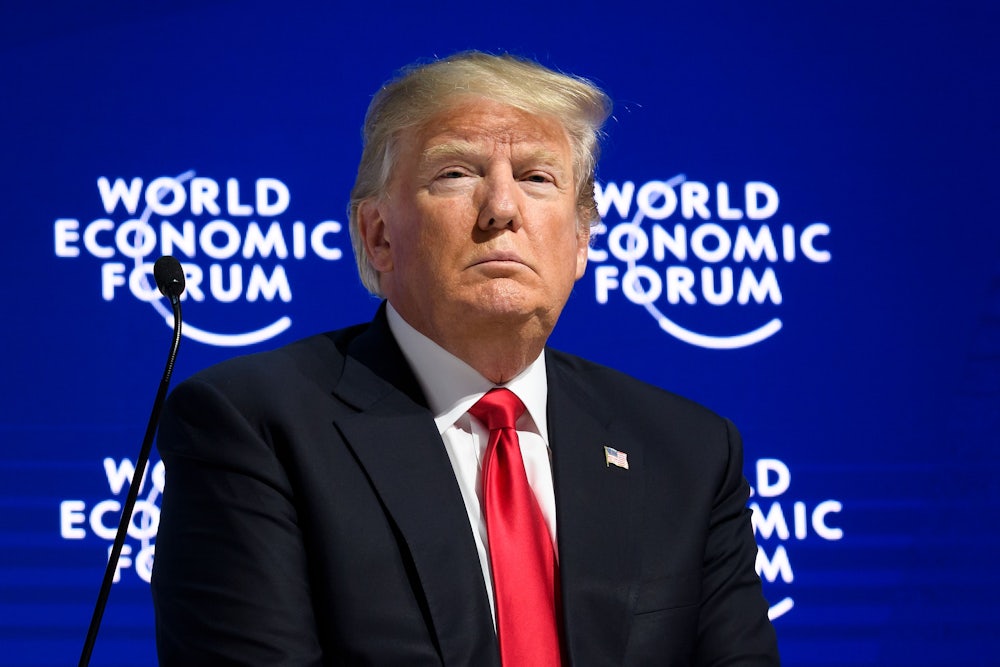President Donald Trump’s speech at the World Economic Forum could have gone worse. To the surprise of many, Trump wasn’t as blustery or antagonistic as might have been expected at a meeting of mostly globalist world leaders. “Mr. Trump stuck to his script and paid the usual pleasantries to the hosts and guests,” the editorial board of the British newspaper The Independent noted. “His tone was soft, his words restrained, his body language relaxed: if he had been irritated by the business leaders, economists and assorted bureaucrats from around the globe, he did not show it.”
But Trump still embarrassed the United States, and he did it by what he didn’t say. The World Economic Forum is a place where international political and business leaders discuss the biggest problems facing the planet—and the biggest opportunities for economic solutions. Obviously, one of those problems is climate change. In 2017, the forum surveyed world leaders about their top five concerns, and four out of those five were climate-related. (The four were: extreme weather conditions, water shortages, major natural disasters, and the failure of climate-change efforts to make a difference.) And yet Trump did not mention climate change at all in his speech, neither as a problem nor an opportunity.
This isn’t necessarily surprising or unexpected. Trump ignores climate change every chance he gets. It doesn’t make it any less shameful that, at a global event where leaders are discussing how to solve a problem, the biggest historical contributor to that problem ignores it entirely.
Especially embarrassing is Trump’s failure to recognize climate solutions as economic opportunities—especially on a world stage where competitors are touting impressive successes in that arena. The delegation from China, for example, “seemed to preach climate action every chance it got,” according to The New York Times. President Xi Jinping, for example, “boasted that 70 percent of the 100 billion renminbi, or $14.6 billion, that [Chinese power company] China Guodian paid into new investments last year went to renewables like wind and solar.” And the president of Chinese food and agriculture giant Cofco “stunned environmental groups by announcing that the company would eliminate deforestation from its supply chain,” according to the Times. A representative from India’s government also said the country wanted a larger role in solving climate change.
Instead of announcements like that, however, the U.S. president gave a brief tirade against the “nasty, mean, and fake” news media and went on his way. The forum ended a few hours later.
